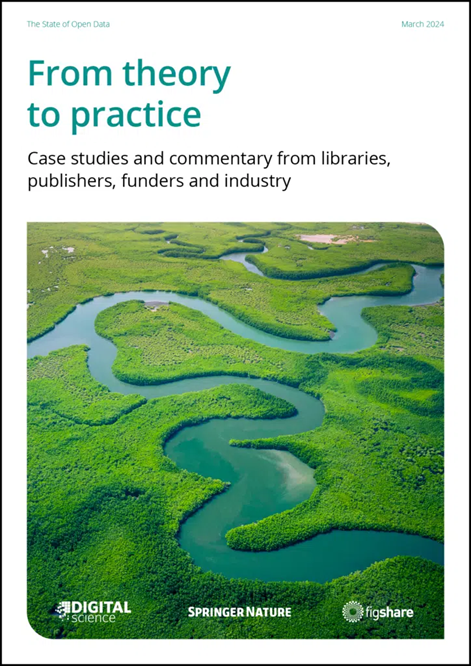
Now in its eighth year, the State of Open Data is the longest running longitudinal survey on researchers’ attitudes towards open data and open science practices. What does the 2023 survey tell us?
Based on over 6,000 responses, the report from Digital Science, Figshare and Springer Nature sheds light on the persisting challenges associated with open data sharing as well as the potential impact of future technologies.
Key Findings
1. Support is not reaching who need it
Almost three-quarters of survey respondents reported they had never received support with planning, managing, or sharing their research data. The data highlights the increased need for greater community collaboration and tools to support researchers in the transition to sustainable open science practices.
For those who had sought and received support with data sharing, it most often came from informal sources like internal colleagues or supervisors (61%). Other sources of support researchers could rely on were institutional libraries (31%), research office / in-house institutional expertise (26%), publishers (21%) and funders (17%).
2. One size does not fit all
Variations in responses from different geographic regions and academic disciplines underscore the need for a more nuanced global approach to research data management support.
Notably, there was a general consensus in favor of a national mandate for open research data (64%), with respondents from India and Germany displaying higher levels of support (both 71%) compared to other countries.
3. Challenging stereotypes
Another key finding of the 2023 survey was that researchers at all stages of their careers share the same levels of support and have the same motivations for open data. This challenges the commonly held misconception that more established academics are opposed to advancement in the data-sharing space and that early-career researchers are the ones more receptive to progress, which highlights the need for more inclusive outreach when organizing discussions, forums, and panels in the open research space.
4. Credit is an ongoing issue
60% of respondents believe that they do not receive adequate credit for their data sharing efforts. For eight consecutive years, the survey has revealed a recurring concern among researchers: the perception that they don’t receive sufficient recognition for openly sharing their data.
5. AI awareness hasn’t translated to action
This year, survey respondents were asked to indicate if they were using ChatGPT or similar generative AI tools for data collection, processing, and metadata creation. While almost half of respondents were aware of generative AI tools for data collection, processing, and metadata creation, most are not yet using them. The most common response to all three questions was: “I’m aware of these tools but haven’t considered it.”
From Theory to Practice – Case Studies and Commentary
For the first time, the State of Open Data comes a supplementary report titled “From theory to practice” that expands upon the results of its years of surveys (raw data and questionnaire here).
The report offers case studies and real-life perspectives on the opportunities and challenges of sharing research data openly, giving us unique viewpoints as told by members of our research community – industry, funders, academic institutions, and publishers.
This year also saw the first publication of a partner report by the Computer Network Information Centre of the Chinese Academy of Sciences, looking at open data in China.








